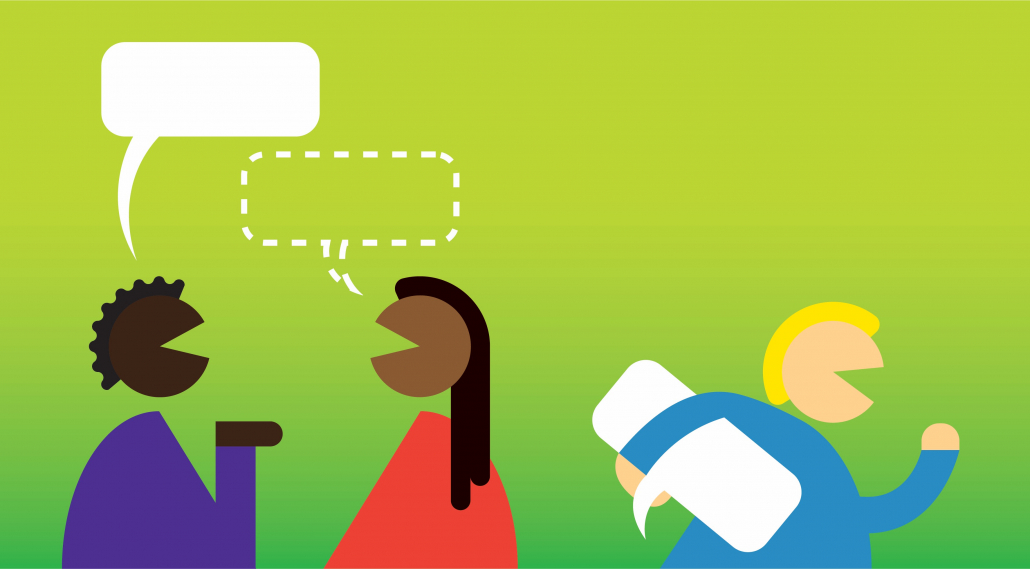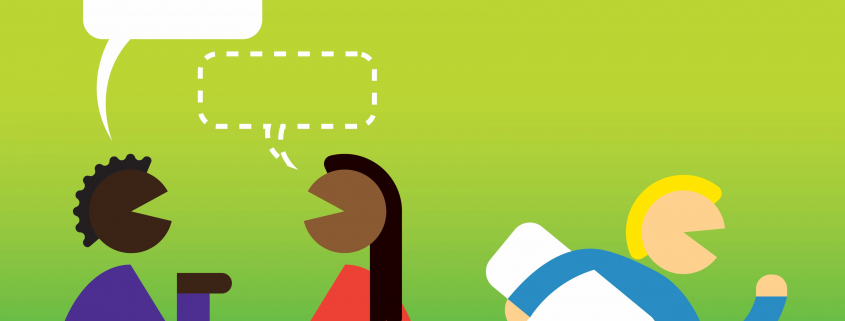Hustle and Fro: Gen Z language isn’t real, no cap

It was middle school, and during an impassioned speech about who knows what, one of my close friends, who’s Black, turns to me and says, “Period!” That wasn’t out of the ordinary, especially for a Black girl in 2014, but I’ll never forget the look of disgust my white peers had on their faces when they overheard it. I was confused, but this was also around the same time I was told by a white classmate, “Marlize, you aren’t like them” — referring to my Black friends — “You don’t talk like you’re ghetto.”
Well, what exactly did that mean? That these Black friends in honors-level classes were uneducated? To me, that’s just how Black people communicated, and either way, by age 13, I was already code-switching, which I’ll talk about later. But, hey, who would’ve thought years later this same way of speech would be popularized and considered the official lingo of Gen Z.
I find that a lot of these phrases like “cap,” “spill the tea” and “extra” are found in internet communities such as Twitter and TikTok, but what must be understood is that it started as African American Vernacular English (AAVE).
For decades, Black people have shortened and invented words to not only communicate but to build community. So, when white influencers like Brittany “Kombucha Girl” Tomlinson associate words like “sis,” “period” and “snatch” to the language of internet culture, it erases the importance of the language.
The internet is so widely used, though, that AAVE has found its way into the vocabulary of non-Black people. A recent example is Sarah Paulson pronouncing the word “period” (often written as “periodt”) as “period T” in an Instagram live.
It wasn’t Paulson’s fault that she mispronounced this phrase, many non-Black people do, but that’s because there isn’t proper education on it. Some watchers even confused her pronunciation with the phrase, “period tea.” When people see a phrase used over and over again in mass media, in most cases, it becomes a trend and doesn’t receive the proper attention to its historical context as it should.
Similarly to the video of Paulson, in 2018, there was a viral video of a Black man asking his white friend how she pronounces, “Whew chile,” — where the “d” in “child” is replaced with an “e” — to where she responded with “whew chil-ay.”
What makes the integration of AAVE into Gen Z language so upsetting, though, is that for years Black language has been mocked, parodied and associated with stigmas like lack of education. Non-Black Gen Z members integrating AAVE into their everyday language, while Black people are stigmatized, conceals the prejudice people have toward the language and exemplifies their ignorance on the topic. Especially when its usage has gone so far as to label Black people as less ambitious and less qualified for jobs which leads to something most Black people are familiar with: code-switching.
Code-switching is a way for Black people to navigate white spaces by optimizing comfort via changing their speech, expression, etc. in order to receive fair treatment, quality service and employment opportunities.
This is used so often, it’s been satirized in many Black television shows and movies. In the ’90s sitcom, “Martin,” the show’s namesake (Martin Lawrence) is seen convincing a 911 operator he is a white man by over-enunciating his words and answering questions like, “What America’s favorite pie is?” (It’s apple by the way.) It’s also seen in the 2018 film, “Sorry to Bother You,” where Cassius Greene (LaKeith Stanfield) finds little success as a telemarketer using his real voice, so he adopts a “white voice,” and his calls go through the roof.
While many think the reason they don’t understand the words used today is because they aren’t in tune with the youth — there’s even a makeshift “Gen Z Dictionary” for it — they’re mistaken. It’s because, in most cases, it isn’t their culture to begin with. The use of AAVE by non-Black people can be a game of either cultural appropriation or cultural fusion, and with the correct background knowledge, it can be the latter. So for those who have taken the time to peruse this piece, I hope you have been enlightened by my composition. Periodt.

